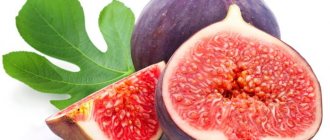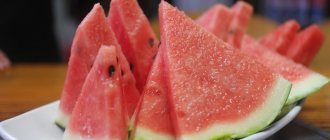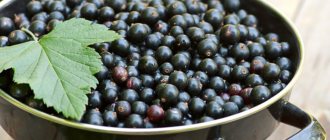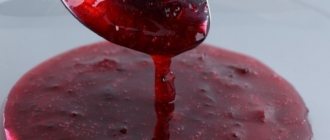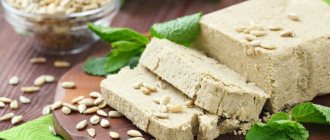Benefit
Blueberries are valued for their beneficial properties. The berries are used for diarrhea, to restore blood supply to the retina, and improve brain function. They have a positive effect on the genitourinary system.
The chemical composition is unique. Product includes:
- Microelements - calcium, potassium, sodium, as well as trace elements - selenium, zinc, manganese.
- Vitamin C supports the immune system and strengthens blood vessels.
- Lots of vitamins K, E, A and B.
- Acids include lactic, succinic, and oxalic.
- Flavonoids.
Can a nursing mother eat blueberries? Considering the composition, the product is very useful during breastfeeding (BF). Berries are considered dietary because they contain fiber: by eating a few fruits, you can eliminate the feeling of hunger. Blueberries contain anthocyanin dye, which reduces the risks of heart and vascular diseases, as well as eye diseases and cancer.
Berries thin the blood, which helps prevent thrombosis. Leaves rich in tannins, flavonoids, and essential oils are used in treatment. The berry is used as a food product and as a medicinal product.
The benefits of blueberries for breastfeeding
Blueberries are a hypoallergenic berry, which is a storehouse of vitamins A, B, C, P, minerals and other useful substances, for example, organic acids, tannins, pectin, etc. Thanks to this, it has many useful properties:
- normalizes metabolism;
- improves vision;
- prevents the development of rheumatism;
- has a beneficial effect on the genitourinary system;
- helps with diarrhea;
- improves skin condition;
- fights inflammation in the mouth;
- strengthens the immune system;
- improves mood;
- helps with depression;
- has an antiseptic effect;
- improves blood circulation;
- normalizes brain function;
- thins the blood, etc.
Is it allowed?
Can a nursing mother eat blueberries? The berry is not contraindicated during this period, but, like other fruits, it must be consumed according to the norm and not overused. Young mothers may not know everything about the baby’s body, so they will not be able to predict his reaction to a healthy treat.
Although blueberries are not contraindicated for breastfeeding, and doctors consider them non-allergenic, there are children with individual intolerance. This manifests itself in allergies. Also, eating berries during breastfeeding can cause diathesis in a child. The first time you need to eat only a few berries. If the child does not have allergies, then next time you can slightly increase the volume of the product.
Rules and norms for use during lactation
After childbirth, a woman’s body is weakened and hormonal levels have not yet been restored, so any product if used uncontrolled can cause a negative reaction. Blueberries are classified as hypoallergenic products, but this only means that the risk of developing intolerance is minimized, and not completely eliminated, as with allergenic ones.
Important! Pediatricians do not recommend including berries and fruits of rich orange, red and dark shades in the diet for the first 2 months of breastfeeding. The coloring pigments in the composition are a provocateur of allergic reactions.
In the first months, you should not eat the berry, since it is saturated with organic acids, which can provoke an eating disorder and rejection in the baby. Then you can gradually introduce the berry into your diet. It is best to do this after feeding, eating 4-5 fruits at a time. If your body has accepted the new product without a negative reaction, you can feed the baby. But then watch your baby: are there any problems with stool, gas, or irritation on the skin.
Rules of use
Nursing mothers need to follow simple tips for introducing and consuming this berry:
- During the first month after giving birth, many foods are prohibited, so mothers do not have to eat all the food they want. The berry is not on the forbidden list, but you shouldn’t get too carried away with it. Blueberries are undesirable during breastfeeding in the first month, but 3-4 months after birth you can eat them without fear.
- The new product should be introduced in the first half of the day so that it is possible to monitor the baby.
- You just need to try the berry, and not eat it in large quantities. For the first time, 5-7 berries will be enough.
- If the child has no negative reactions, then blueberries can be eaten without fear.
- If a rash or other signs of allergy appear, you should stop eating the berry. You can try again no earlier than in a month. It is advisable to start with frozen compote, since in this form the berry is less allergenic.
Can a nursing mother eat blueberry jam?
Blueberries are considered a hypoallergenic product, so consuming them while breastfeeding is encouraged. But it should be borne in mind that there may also be an allergy or individual intolerance to such products, so introduce it into the diet gradually.
Blueberry jam is good for a nursing mother. However, moderation is important.
If you are wondering whether jam can be used while breastfeeding, then know that it is more allergenic than fresh berries. Blueberry jam contains sugar, which can cause an allergic reaction or gastrointestinal problems in the baby. But this does not make the delicacy forbidden. You can just add jam a little later than fresh blueberries. It is recommended to get acquainted with blueberry jam 2-3 months after birth .
Be sure to choose a good quality product. The color and consistency of the jam should be uniform. The presence of foam, lumps, etc. is a sign of a low-quality product or a violation of production technology. But it’s best to pick the berries yourself and make jam at home.
In the first month
Eating blueberries as a hypoallergenic product is allowed in the first month. If we are talking about jam, then it is better to postpone it until 3-4 months. The baby's gastrointestinal tract adapts to a new type of diet after birth, so it is difficult for him to cope with foods that are difficult to digest or with allergens. Since sugar in jam is not the healthiest product, you should not eat blueberry jam in the first month after giving birth.
When and how to properly introduce it into the diet?
As mentioned above, blueberry jam is best administered 2-3 months after birth. Then the baby’s body will be strong enough to accept such a sweet product. The first time, try 1 teaspoon of the treat in the morning . It is better to drink it with tea or water.
Remember, allergies or tummy problems most often appear 1-2 days after tasting, so be attentive to your child. The appearance of rashes, itching, anxiety, constipation, and colic should alert you. Set the treat aside for a few months and then try again. If everything goes well, you can gradually increase the amount of blueberry jam you eat.
| Baby's age | How to use |
| 1 month | Berries are allowed (small quantities), jam is prohibited |
| 2 month | You can have berries, jam is not recommended, but after consulting a doctor, it is possible to use it in minimal doses. |
| 3 month | It is allowed to introduce into the diet starting from 1 teaspoon, gradually increasing the amount. |
| 4 month | Can be eaten in moderation (up to 6 tablespoons per day). |
| 5 month | There are no restrictions on use if there is no allergy. |
You can also read about permitted goodies for nursing mothers in the article “What sweets are possible while breastfeeding.”
In what form is it best to consume?
Frozen foods are less allergenic to humans. This will be relevant if the baby’s feeding time is not during the blueberry season. Then the berries are picked during ripening and then frozen. You can make compotes, preserves, and jams from the fruits. Blueberries are useful not only for breastfeeding. Compote can also be consumed by babies under 1 year old - it can be introduced into the diet as early as 7-8 months.
Blueberry jam and desserts are well tolerated, so young mothers should start eating the berries in this form. Jelly allows you to quench your sweet tooth during breastfeeding. Usually the delicacy is obtained without heat treatment, so it retains all the valuable properties of blueberries.
What can you cook
Blueberries contain pectins. This substance helps thicken prepared desserts: marshmallows, marmalade, jelly. The rich taste of the berry is perfect for preparing various drinks. As for the period of breastfeeding, drinks not only from fruits, but also from leaves are useful.
Find out whether blueberries weaken or strengthen stools.
Jam or jam
For long-term storage, jam and marmalade require the addition of large amounts of sugar. Due to the abundance of sugar and pectins, it is recommended to introduce jam into the baby’s diet at 3 months. Start gradually, with 1 tsp, observing the child’s reaction.
Jam does not contain the full amount of useful substances; during heat treatment, some part is lost. But regular small doses daily will serve as high-quality prevention against seasonal diseases and digestive problems.
Compote and other drinks
Blueberries are used in the preparation of many drinks, such as:
- fruit drink;
- jelly;
- juice;
- decoction and tea (from dried berries);
- compote.
Warm drinks will warm you up on a cold evening and relax your body, which is tired during the day. Tea or decoction accelerates the blood and improves the functioning of the cardiovascular system. This is an excellent remedy for vitamin deficiency and anemia.
Did you know? Blueberry inflorescences always face down - this way they protect pollen from rain, making it easier for bees to work.
A decoction of blueberry leaves is no less useful: it does not cause allergies, and it contains many times more vitamin C than the berries. To maintain immunity or treat colds in nursing women, tea or decoction or leaves are the first remedy in folk medicine.
Healthy nutrition for a nursing mother is the key to the normal development of her baby. Blueberries are a useful and even healing product, especially in demand during these difficult times, but the berry should be consumed in moderation.Blank
If blueberries do not cause allergies during breastfeeding, then they can be harvested for future use. The best option would be freezing. You should sort the berries, wash and dry. Then you need to put the workpiece in a bag and put it in the freezer. In winter, during a lack of vitamins, such a product will be more useful than ever.
Frozen berries go well with cereals and baked goods. Blueberries can be dried and made into jam. Not only blueberries will be beneficial for breastfeeding. Young leaves of the plant are also prepared: they need to be dried in the shade and placed in a glass jar. Raw materials are stored in a dark room. The leaves can be added to tea or compote, making the drink tastier and healthier.
Compote
Blueberry compote is also useful for breastfeeding. To prepare it, you need 1 kg of berries and sugar (350 g per 1 liter of water). Jars (1 and 1.5 liters) need to be rinsed and treated with boiling water. Then the berries must be sorted, leaving only ripe but strong fruits. Next, you need to carefully rinse the blueberries and dry them by placing them on a sieve.
Half fill the jars with berries. Pour water into the pan and add sugar. While stirring, boil the syrup for 5 minutes and strain through cheesecloth. Blueberries are poured with syrup. The jars need to be covered with lids and then placed in a pan with hot water. It is necessary to perform sterilization: 0.5 l – 15 minutes, 1 l – 20 minutes. Then the jars must be removed and closed with lids, turned over, and wrapped in a blanket to cool evenly.
Jam
Blueberries will be useful during breastfeeding in the form of jam. If the product will be stored in a pantry or cellar, then heat treatment is necessary. It is advisable to choose methods of exposure in which fewer microelements are lost. To prepare a healthy treat, use the following simple recipe.
You will need berries, pectin (1 sachet per 1 kg of blueberries), sugar (in the same amount as the fruits). To obtain a jam that is not too liquid, add 2 times more pectin. But you should proceed with caution, otherwise lumps will appear.
The berries must be washed, sorted, and placed on a towel to dry. Then they are transferred to a container and mixed with sugar. Using a masher, you need to grind the mass until smooth, and then add pectin and mix everything thoroughly.
Place the container over medium heat and bring to a boil, stirring the product constantly. Then the fire decreases and you need to wait 5-7 minutes. Hot jam is poured into sterile jars and sealed with tin lids. These blueberries are safe for breastfeeding, and they also retain their beneficial properties.
Blueberries for a nursing mother: how to administer
Blueberries are not contraindicated for a nursing mother, however, like many other vegetables, berries and fruits, they should be eaten in moderation, without overuse. Mothers do not yet fully know the body of their recently born baby and cannot predict how he will react if she enjoys blueberries, as they say, from the heart.
Despite the fact that many doctors consider this berry to be one of the most non-allergenic, some children may have an individual intolerance to it, which is often expressed by allergic reactions. In addition, it can cause diathesis.
The first time you should eat only a few berries. If the baby has no reaction, the number of berries can be increased
It is because of these reasons that a nursing mother should adhere to the following tips for its administration and consumption.
We recommend reading: Is it possible to eat strawberries while breastfeeding?
- In the first month of a baby’s life, many foods are prohibited - mothers have a very limited list of foods they can eat. Blueberries are also not on this list. It is better to start eating it no earlier than 3-4 months.
- A new product (including blueberries) is always introduced in the first half of the day, so that the mother has time and the opportunity to observe her baby.
- Blueberries should only be tasted, and not eaten in kilograms. Stop at a few berries.
- If the baby feels normal after breastfeeding, and you have not recorded any strange reactions on his part, then in the following days the amount of berries eaten can be increased.
- If an infant develops a rash or other allergic manifestations that did not exist before eating blueberries, the nursing mother needs to temporarily remove this product from the diet and resume its use no earlier than a month later. And it’s better to start with frozen blueberry compote, since in this form the berries and fruits are not so allergenic.
Dessert
When breastfeeding, you can eat blueberries in other forms. For example, desserts are made from it. You will need cottage cheese (200 g), ground through a sieve. Use a blender to beat the berries (1 cup) and banana (1 pc.). Transfer half of the blueberry-banana mixture to a plate. Cottage cheese and natural yogurt (200 ml) are added to the remaining portion. All products must be whipped until smooth. Transfer the finished mass into saucers or bowls. Ice cream and blueberry-banana mixture are added to the top. The result is a tasty and healthy dessert that retains all the valuable vitamins. You can cook other delicious dishes from the berries.
Thus, blueberries are safe during breastfeeding. But it is best to consult a doctor before use to avoid adverse consequences for yourself and your child. If the specialist allows you to eat berries, then you need to introduce them gradually.

